#lived experience
Text
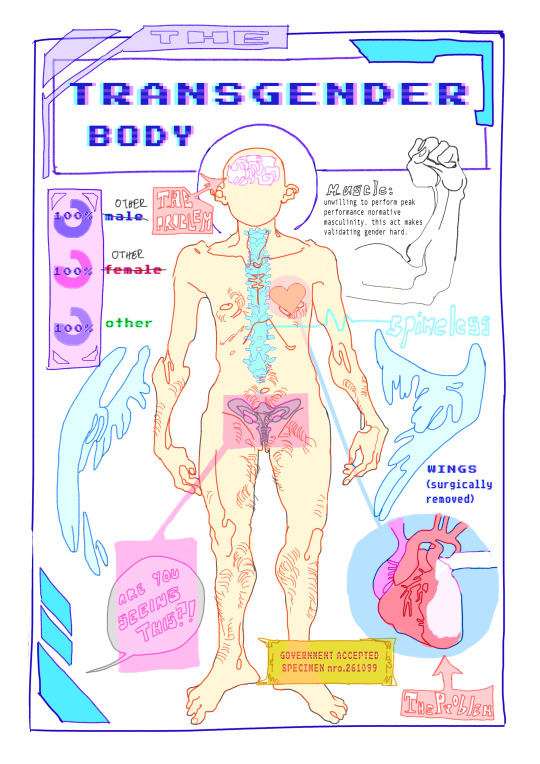
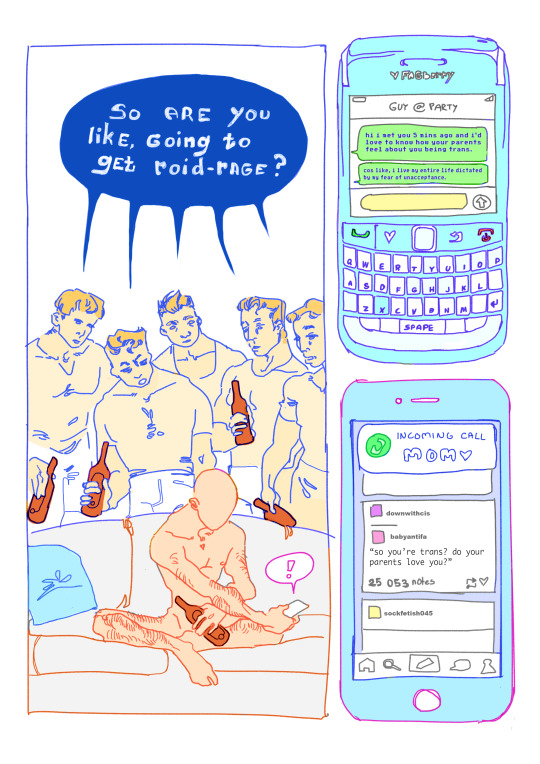
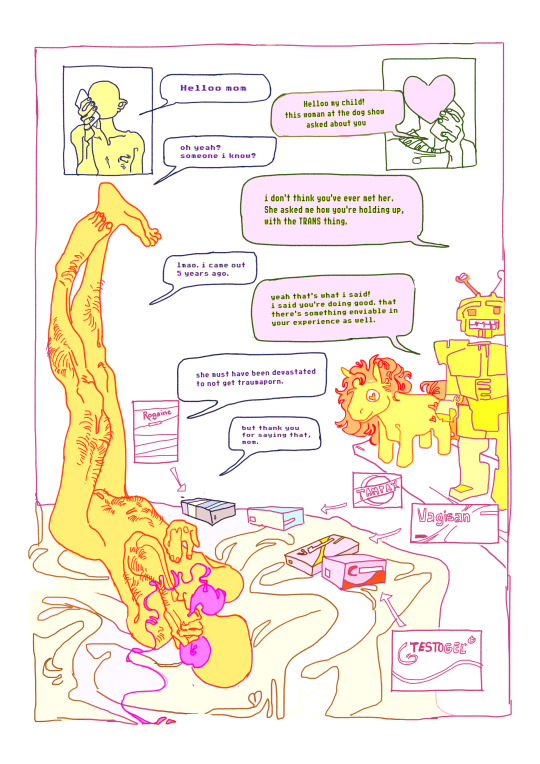
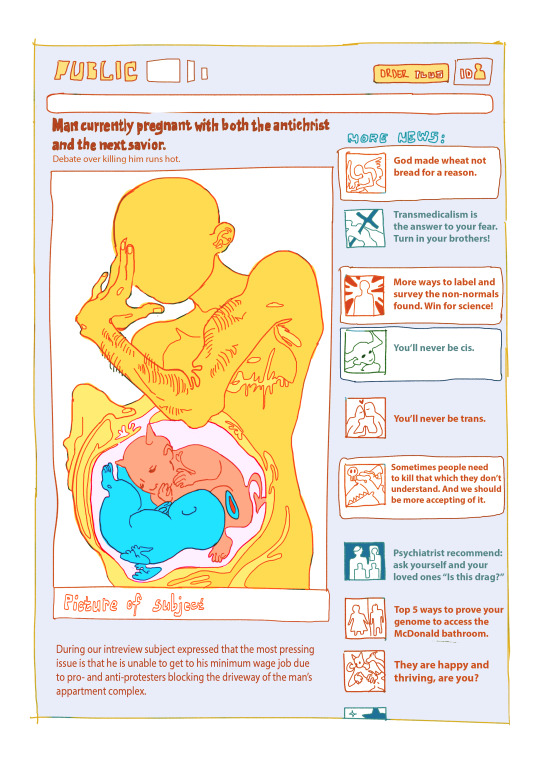
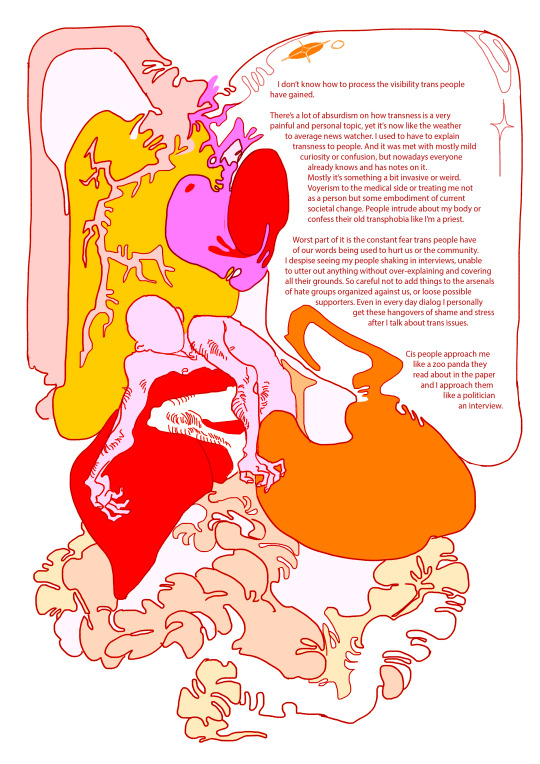
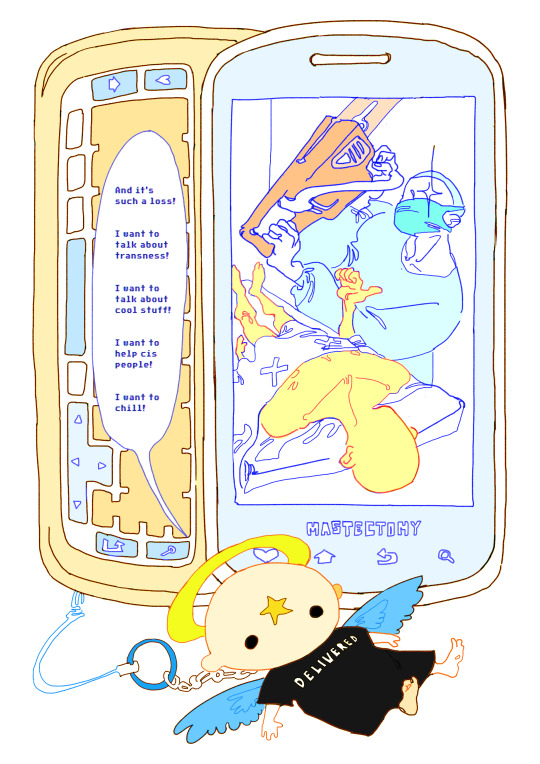
confusing comic about existing as a trans person during confusing times of trans visibility.
#transmasc#trans#trans comic#artist on tumblr#idk what to tag this with. very happy with it!!!#mastectomy#nonbinary#comic#lived experience
35K notes
·
View notes
Text
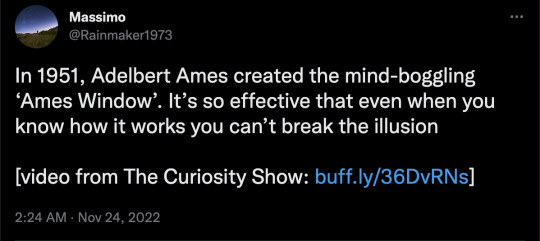
An interesting demonstration of how the human brain works.
But also something of a lesson regarding perception, and the unreliability of subjective perspective versus objective reality.
You can be extremely certain about how you perceive the world, your "lived experience," that which you "feel it in my heart." But that doesn't mean it's actually true. And it doesn't mean we have to endorse it, or ignore or outright deny objective reality.
That's a "you" thing, not a "we" thing.
#Adelbert Ames#Ames Window#perception#perspective#objective reality#lived experience#i feel it in my heart#subjective experience#The Curiosity Show#science#optical illusion#religion is a mental illness
32K notes
·
View notes
Text
The Curse finale interpretation
Ash's ascent/death, parallels to pregnancy, and "lived experience" in The Curse
There was a parallel between the way nobody believed or understood Asher when he was stuck in the tree to the way that pregnant people are treated while they are in labor (or even how women are treated in medical settings in general)
Ash's ascent/death
Nobody would believe Ash (besides Whitney who witnessed him floating inside the house and Moses who saw Ash float up into the tree) that he couldn't come down. Everyone who sees him projects their own interpretation of Ash's experience and intentions.
Dougie thinks Ash is running from his responsibilities because Dougie's dad did the same, and (from Dougie's POV), some men panic or even run away from their responsibilities once their partner is in labor or gives birth.
The neighbors from the community think that Ash and Dougie must be filming something because that's is their experience with these outsiders; they are TV people and act strangely, which can be explained by assuming that any weird behavior is a part of making a TV show. This explanation is also the best that they have for how Ash could possibly defy physical law (because it really isn't reasonable to assume that he just is breaking physical law in some way).
Ash repeatedly tells them that he will fly up. He tries his best to explain what he is going through, and he isn't doing the best job, probably because he's extremely afraid that he might die. I repeatedly tells Dougie and the first responders what he needs from them, and nobody listens. They think that Ash is delusional and that everyone else has a better understanding of the situation and therefore know what to do.
Connection to pregnancy
I think some of Ash's experience can be seen as analogous to what pregnant women (and women in medical settings in general) experience. Historically, doctors have been male, and they obviously have never been pregnant or gone into labor, and studies show that even women healthcare providers dismiss women and minorities in medical settings (it has to do with socialized biases in everyone, which I will come back to).
These professionals often dismiss a pregnant person's self-report of needing help, and a CDC report shows that 1 in 5 women report medical mistreatment while giving birth:
Approximately one in five (20.4%) respondents reported experiencing at least one type of mistreatment. The most commonly reported experiences of mistreatment were being ignored by health care providers, having requests for help refused, or not responded to (9.7%); being shouted at or scolded by health care providers (6.7%); having their physical privacy violated (5.1%); and being threatened with withholding of treatment or being forced to accept treatment they did not want (4.6%).
The same report found that the poorer the woman or more marginalized her background, the more risk of facing mistreatment:
Overall, 28.9% of respondents reported experiencing at least one form of discrimination during maternity care (Table 3), with highest prevalences reported by Black (40.1%), multiracial (39.4%), and Hispanic (36.6%) respondents. Overall, the most commonly reported reasons for discrimination were age (10.1%), weight (9.7%), and income (6.5%); reasons varied by race and ethnicity.
Initially Whitney planned to go to what was implied to be a better hospital. It feels like the show maybe wanted the viewer to expect that Whitney would die due to being at a "poor" hospital (and maybe she did; the finale went no full magical realism, imo). Benny and Nathan probably expected that viewers would immediately think or even assume that this would happen (drawing from our own biases, even if they are informed by statistics), which makes me think that Ash's experience is analogous to pregnant peoples' medical mistreatment.
In these medical settings, doctors frequently ignore a pregnant person's self-reports or requests for help, and instead, the doctors and medical staff (regardless of gender) tend to think that they know better or that the pregnant person is delusional/hormonal/emotional/etc. They dismiss their lived experience. Doctors have historically been male, so they have NO experience being pregnant, but they think they know better than the pregnant person, and even women who have been pregnant cannot speak for every woman. It is not rational to take your own experiences and extrapolate them to everyone else (which has been a common theme in the show: making assumptions based off of limited experience or socialized biases).
Like pregnant people facing medical mistreatment, Ash was ignored by health care providers Dougie and First Responders, had requests for help refused, or not responded to; he was shouted at or scolded by health care providers Dougie for running from responsibilities of becoming a father; and had treatment withheld (the anchored net that he repeatedly begged for) and was forced to accept treatment they did not want (tree branch cut off, sending him to his death).
Lived experience, hermeneutical gaps, and epistemic injustice
OKAY. So this comes back to (what I have taken to be) the overall recurrent theme of The Curse: lived experience, hermeneutical gaps/injustice, and testimonial injustice (which are forms of epistemic injustice, for anyone who is interested in learning more about this).
Hermeneutical gaps occur when a person or group lacks the concepts or terminology to describe their experience. Such gaps lead to hermeneutical injustice; Miranda Fricker describes hermeneutical injustice as occurring
when a gap in collective interpretive resources puts someone at an unfair disadvantage when it comes to making sense of their social experiences. An example of the first might be that the police do not believe you because you are black; an example of the second might be that you suffer sexual harassment in a culture that still lacks that critical concept . . . hermeneutical injustice is caused by structural prejudice in the economy of collective hermeneutical resources.
Before the term 'sexual harassment' came to be, people impacted by such harassment didn't have the concepts or terminology to be able to describe their experience or what they were going through; they were often dismissed as just being flirted with or they didn't even discuss their experience because even though the felt like something was wrong, they didn't have the concepts to articulate their experience, particularly to groups who do not have such experiences.
Here, Fricker describes hermeneutical injustice as:
. . . someone has a significant area of their social experience obscured from understanding owing to prejudicial flaws in shared resources for social interpretation . . . The wrong is analysed in terms of a situated hermeneutical inequality: the prejudicial flaws in shared interpretive resources prevent the subject from making sense of an experience which it is strongly in her interests to render intelligible.
So hermeneutical gaps (lack of conceptual resources [words or formed concepts] to describe experience) lead to hermeneutical injustice (where a person's experience is misinterpreted in a way that leads to harm or testimonial injustice).
Testimonial injustice occurs when one party (person or group) dismisses the credibility of another group (basically treating the marginalized person as though they are not a true knower).
An example might be Fernando trying to be heard about his knowledge of the community violence. Whitney dismisses him, thinking that she knows more about systemic issues. Ash takes advantage of this kind of injustice when he tries to cover his lie that Abshir, Nala, and Hani live in transitional housing once they bought the property they live in. Whitney called out the inconsistency, and Ash decided to exploit the lack of credibility marginalized people are usually extended. He says something like "honestly I don't know with them they say one thing then another," implying that they are dishonest.
Connecting Ash's ascent/death and medical mistreatment of pregnant people with overall themes in The Curse
ANYWAY. Pregnant people in labor go through a unique experience, and sometimes they lack the concepts necessary to explain their experience in a way that medical professionals will "understand" or take seriously (hermeneutical gap leading to hermeneutical injustice). Further, medical professionals dismiss a pregnant person's testimony and treat them like they are not credible while the medical professionals work from their own assumptions or formal medical knowledge (testimonial injustice).
Asher does not have the concepts to describe what he's going through. Nobody has experienced what he experienced, and the experience is new to him, so he doesn't know how to convey what he experiences in a way that Dougie and First Responders will understand. Further, Dougie and the First Responders dismiss Ash's testimony and treats him like he's not credible while Dougie and the First Responders work from their own assumptions or ascriptions of Ash's intentions.
Throughout the show, our main characters have made assumptions about poor people, natives, and their own employees. Many of these assumptions arise out of dismissing or discrediting the experiences of others in favor of their own interpretation of events or others' intentions. Whitney (and Ash) thinks she knows what's best for Las Espanola, even though she lacks the lived experience or even the proper educational experience to understand the complex nature of amending systemic injustice. She is like the medical professionals and First Responders who do not listen to the lived experiences (self-reports) of what people want or need.
This behavior necessarily implies that the people she's helping don't know what's best for themselves, which implies that Whitney has some kind of expertise that qualifies her to intervene on their behalf. She actually doesn't; she has no qualification other than she happens to have rich parents, which doesn't really qualify a person for any kind of job, especially one as complicated as amending economic or social injustice.
I didn't expect there to be growth on behalf of the characters (largely because people have pointed out that Safdie brother projects rarely involve any kind of meaningful growth or resolution; they have bleak outcomes), but in the finale, I thought that Whitney (and Ash) had grown. She expresses jealousy and bitterness that Cara was receiving national attention for leaving the art scene while her and Ash's show wasn't even aired; it ended up being direct to app content. She uncharitably criticizes Cara for disliking exploitive collectors, and Whit says that she thinks that Cara quit because no one bought her work. Ash jokes that maybe if Whit quits her project to work in a massage parlor, maybe people will write about her too. Whit bitterly jokes back that she would need some kind of cultural sob story like saying she was making a statement on the Holocaust. Ash says he knows that she's making joke that selling her art retraumatized her but goes on to point out that native people have gone through a lot, which he says that he fully understands where Cara is coming from and that people process tragedy in their own way (discussing Mel Brooks), and Whitney finally concedes that she probably shouldn't be talking the way she is and that she doesn't have that lived experience. He assures her that he considers her Jewish (and that she can make such jokes), but I think the takeaway is that—on some level—Whitney has gained some self-awareness and realizes that her experiences shouldn't inform the way she interprets other peoples' choices and intentions.
The concepts I discussed here might also be connected to the Dunning-Kruger Effect, which is the phenomenon that people (at any level of intelligence or education) learn something and think that they have a better understanding of what is going on than they actually do. When people (like Whitney) decide to act on such false assumptions of self-evaluation, they are likely to make mistakes or perpetuate injustice.
tldr; the real curse (imo) is the insidious implicit biases that are socialized into us and lead us to making assumptions about others' experiences and intentions. These assumptions ultimately create barriers that limit social understanding and social progress. If we all take a moment to examine why we reasoned as we do or where we get our ideas about people who don't share our ethnic, economic, gendered, religious, etc. background, we might find that we are missing the necessary lived experience (a hermeneutical gap) to understand where they might be coming from. Instead of assuming intent or competency or dismissing or being suspicious, we should all charitably interpret others to try to assume the best in and most of other people. It is what we would want others to do for us. Performing this kind of empathy will ultimately lead to developing the necessary empathy to overcome such biases by habit alone, which will create a more compassionate, empathetic, and understanding world, while also deepening and enriching our own lives and the lives of others by celebrating our plurality.
When we allow certain ideas into our head, they become very real to us, and when we act on those ideas without examining them carefully, those false beliefs can cause real harm.
#the curse#nathan fielder#benny safdie#emma stone#a24#showtime#epistemic injustice#hermeneutical gap#hermeneutical injustice#lived experience#spoilers#the curse explained#the curse finale explained#green queen#the curse s1e10#implicit bias#cognitive bias#dunning kruger
72 notes
·
View notes
Text
me and my friend went to get boba tea and i was wearing my boba fett tshirt and the person at the counter asked "IS THAT BOBA FETT" and i said "YEA :D". and then they shot me 15 times and threw me in the sarlacc pit
83 notes
·
View notes
Text
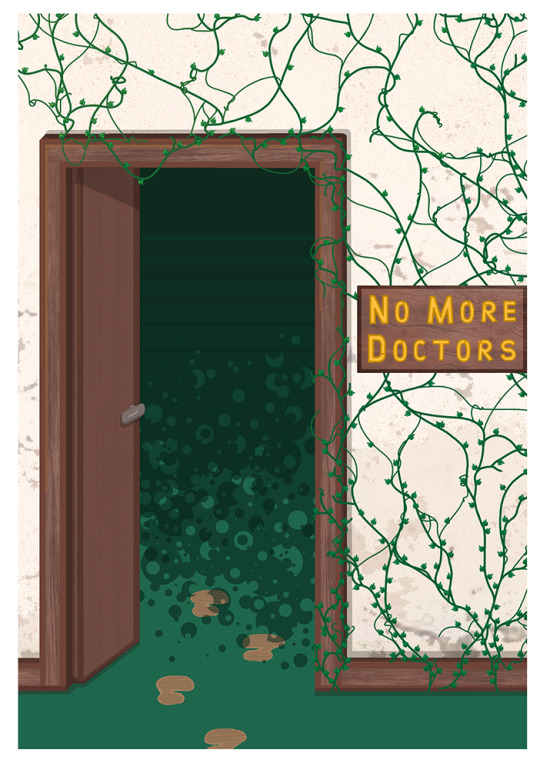


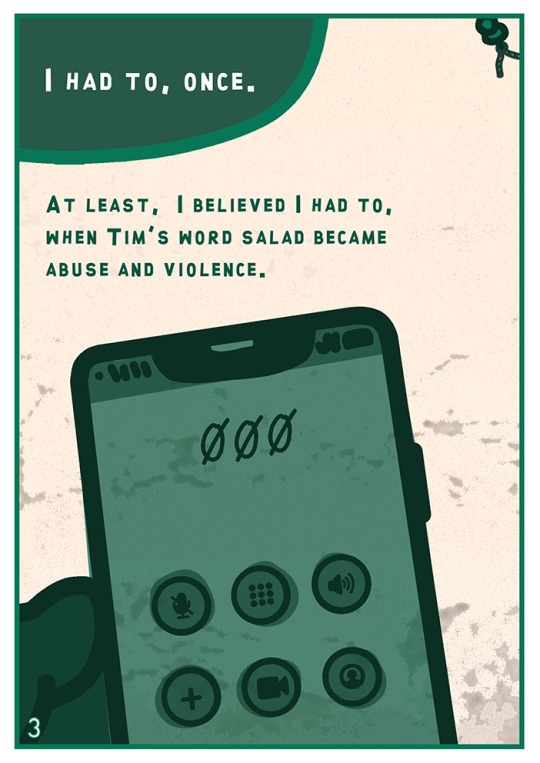
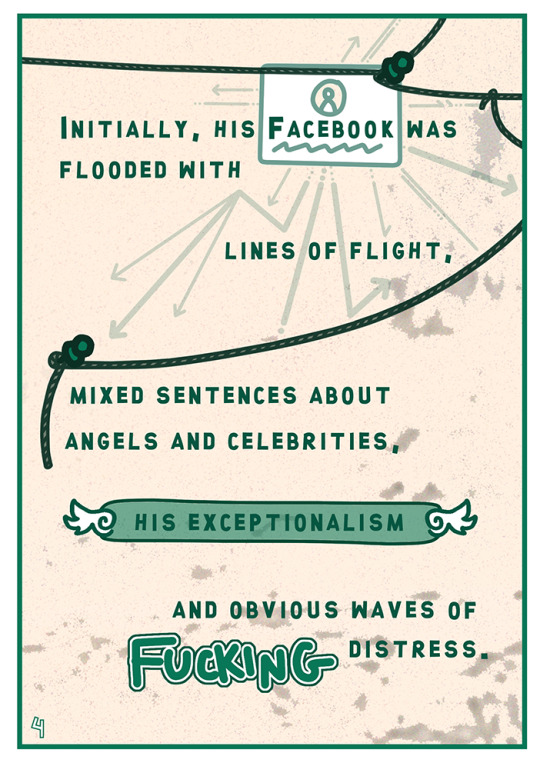
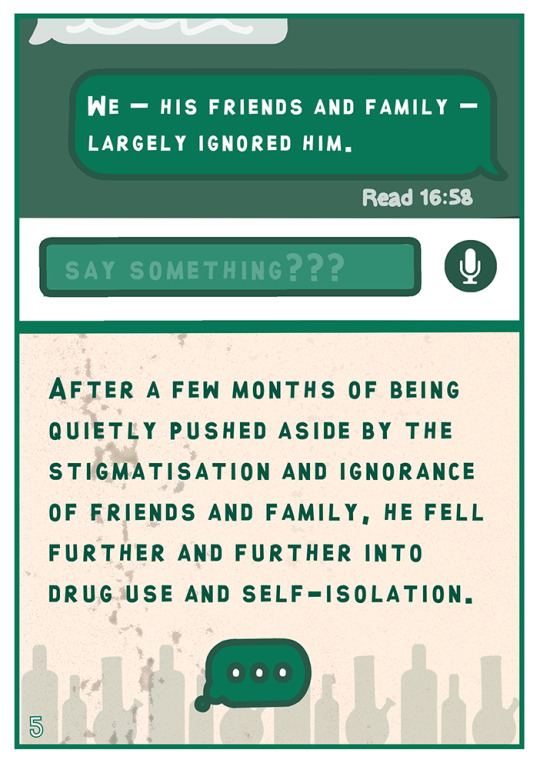
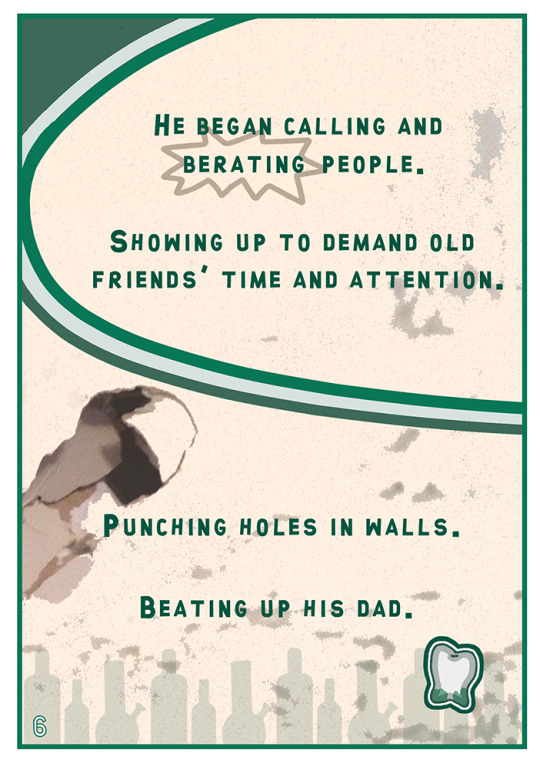

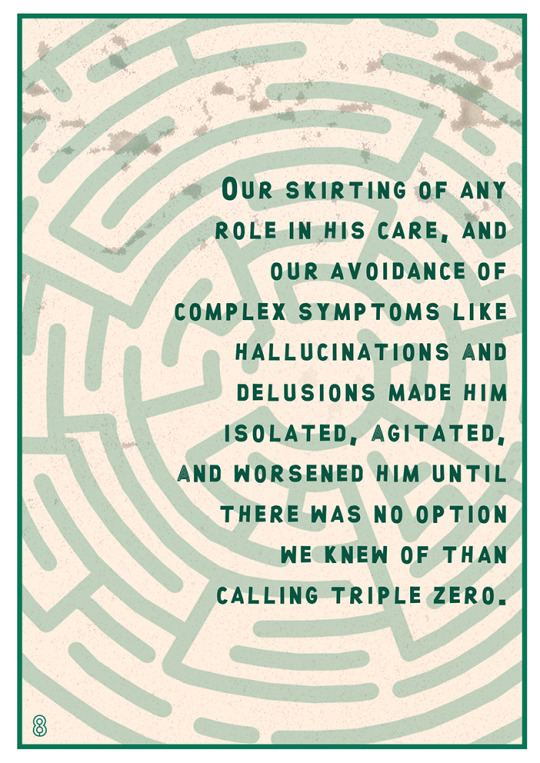




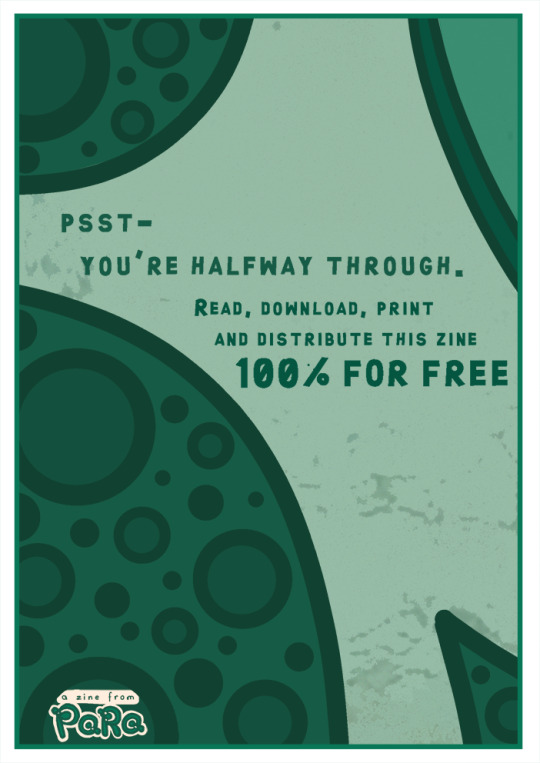
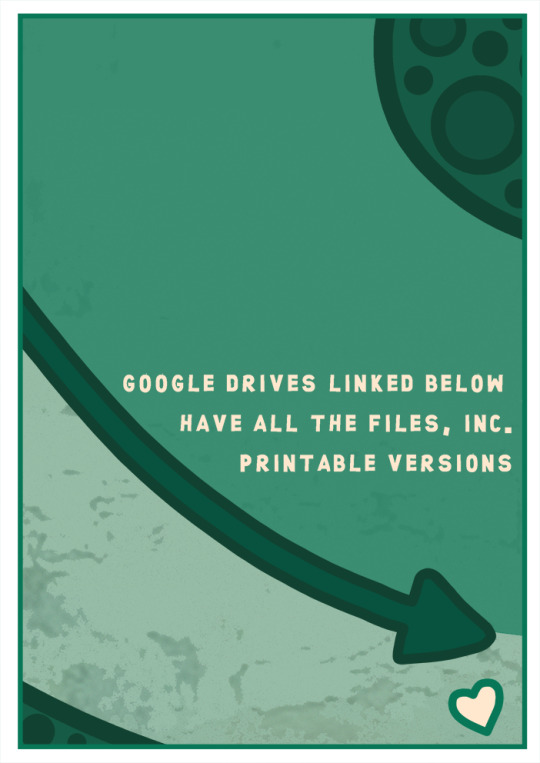
Want to read, download, or distribute the zine?
Read online on my website -> https://parasocial.work/#zine
Printable copies on Google Drive -> https://drive.google.com/drive/folders/14w1DNiJ7N2538bZgAR3FB9_r_LXJVKqM?usp=drive_link
Narrated and accessible audio version is on Youtube -> https://youtu.be/kJGNs_ddbQc?si=v2IulQRpdNjNG9lG
#zine#zine promo#art zine#artists on tumblr#vtubers of tumblr#lived experience#neurodivergent#digital art#neuropunk#mental illness#cw hospitalization#cw mental health#cw suicide#cw addiction#cw hospital#indie vtuber#mental health
65 notes
·
View notes
Text
Therapy is conditioning, usually social control. That's it. They'll find new ways to do it that hurt less but as long as you meet the goals set by a room of fancy psychiatrists with a lot of power, you're "healthy"
#mad activism#psychiatry#lived experience#neurodivergent#anti psychiatry#mad pride#therapy#therapist#dsm 5#psych abolition
19 notes
·
View notes
Text
“Talk to a therapist” “go to the psych ward” are ableist statements and r not supportive to the psychotic communities who experience delusions of persecution and extreme paranoia who wont trust their therapist or the psych ward staff?? and are likely to get traumatized if they go to therapy or the psych ward in a state like that
Seen posts on here that recommend that psychotics (Doesn’t specify what kind) speak to therapists? And from personal experience I don’t agree (depends on what kind) and think it can be harmful. I was lucky enough to be given a few free sessions-my mom had something set up (like 3-the country I live in offers that to some ppl 🇨🇦 but my therapist) but it was during my psychotic depression (w chronic paranoia) and now I feel ways about seeing a therapist.. idk don’t recommend seeing one if ur like that, it was kinda traumatizing and it wasn’t the therapists fault
Everything is traumatizing when ur in a state like that :( still learning what triggers I got while like that esp having experienced things for as long as I have
I also never told my therapist about the psychotic symptoms I was experiencing during things, didn’t trust being honest about them with a professional at the time, just had to mask a lot. Didn’t tell my family either. I was rlly scared about the terrifying things I was going through internally
#disability justice#psychotic depression#schizophrenia#bpd psychosis#bpd paranoia#delusions of persecution#extreme paranoia#anti oppresion#transformative social justice#ableism#lived experience#bipolar 1 depression#psychotic depression awareness#improving care for psychotics
29 notes
·
View notes
Text
I decided to make my own hyperspecific poll! All the options are true to the body's lived experience!
*Don't worry: I wouldn't include this one if it were dangerous to the person to do so
**They were okay
I'm mostly curious because when I was talking to an offline friend, they said that we had an interesting life/knew interesting people, so I'm curious how many others can relate to this stuff!
Please reblog for greater sample size!
16 notes
·
View notes
Text
Oh my God I'm such a dumbass. 😱
I just realised why Silcos teeth are like-

-like THIS.
It's actually super well thought out and once again fortiche has blown off my underwear with their increadibly thoughtful character creation.
It's because of his overbite. When you have an overbite, if you take a blow to the jaw by falling on your chin or otherwise, the force of it thrusts your lower jaw forward and the back of your lower teeth actually hit behind your front teeth with enough force that it breaks them like this.

How do I know this?
Because it actually happened to me. As a dumb child I slipped over on a slimey concrete puddle and couldn't brace the fall with my hands, (because they just slipped too) and copped the whole force of the fall on my lower jaw creating that exact pattern of tooth chipping. I've met a few people other people over the years with overbites who had the same shit happen to them too.
Knowing Silco, he's probably been in a fight, fallen while doing zaun parkour, been attacked or also just had his shit absolutely rocked in a slippery puddle and received a similar toof chippy injury.
So now as @purpurniymstitel says its his perfect lil cigar holder. 💖
#silco#ironandglassoc#not a dentist#lived experience#arcane#this is so dumb lol#i need to share this stupid bullshit though#overbite supremacy#neckface elite
351 notes
·
View notes
Text

Acknowledging lived/living experience
I would like to take the time to acknowledge those of us with lived and living experience. To acknowledge what we’ve been through and also what we may be going through.
I want to acknowledge the fact that we’re still here and in saying this, acknowledge the fact that every single challenge life has put you up against, you’ve won! If we look at that mathematical, it translates to a 100% victory rate.
You should feel so proud of this accomplishment. It’s fucking HUGE!! You should feel honoured and humbled by the very real achievement that YOU ARE STILL ALIVE TO TELL YOUR PERSONAL STORY! Your story may alleviate the weight of what others may be carrying. Your story is powerful and it has the potential to SAVE LIVES!!
Congratulations. You are so much more than just a survivor. You are a champion of life.
Thank you.
#lived experience#mental health#self care#self love#self h@rm#self improvement#wellness#wellbeing#love#mental illness#mentally tired#writing#poetry#spilled ink#artists on tumblr#asexual#reading#my writing#neurodivergent#neurospicy#neurosparkly#neurodiversity#adhd#actually adhd#autism#authenticity#lgbtq community#lgbtqia#trans pride#trans
7 notes
·
View notes
Text
We experience events in association with an ongoing story about who we are, in which we struggle to achieve coherence and continuity rather than objective truth. Similarly, our memories do not consist of snapshots of our experiences; rather, we store our experiences in memory in connection with a web of associations that is consistent with our narrative. Further, each time we store or recall an event, we invoke and reconstruct (“re-member”) not an isolated occurrence but the entire web of associations: our story. This storytelling is central to the protean self’s capacity to shift shape while sustaining its inner form.
— Lisa Capps and Elinor Ochs, Constructing Panic: The Discourse of Agoraphobia
Follow Diary of A Philosopher for more quotes!
#Lisa Capps#Elinor Ochs#anthropology#quote#quotes#Agoraphobia#proteus#psychology#panic disorder#lived experience#dark academia#academia#light academia#storytelling#writeblr#shapeshifting
12 notes
·
View notes
Text
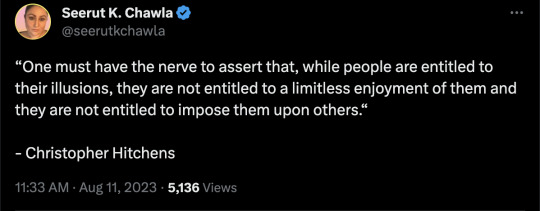
"One must have the nerve to assert that, while people are entitled to their illusions, they are not entitled to a limitless enjoyment of them and they are not entitled to impose them upon others."
-- Christopher Hitchens
There is an objective reality, and nobody is obliged to participate in the denial of it, no matter deeply felt anyone's need to deny it might be, or how hurt they might be for others to decline that participation.
#Christopher Hitchens#freedom of belief#freedom of religion#freedom from religion#secularism#religion#lived experience#identify as#i identity as#feel it in my heart#religion is a mental illness
104 notes
·
View notes
Text
and are our shitty rich people in the room with us right now
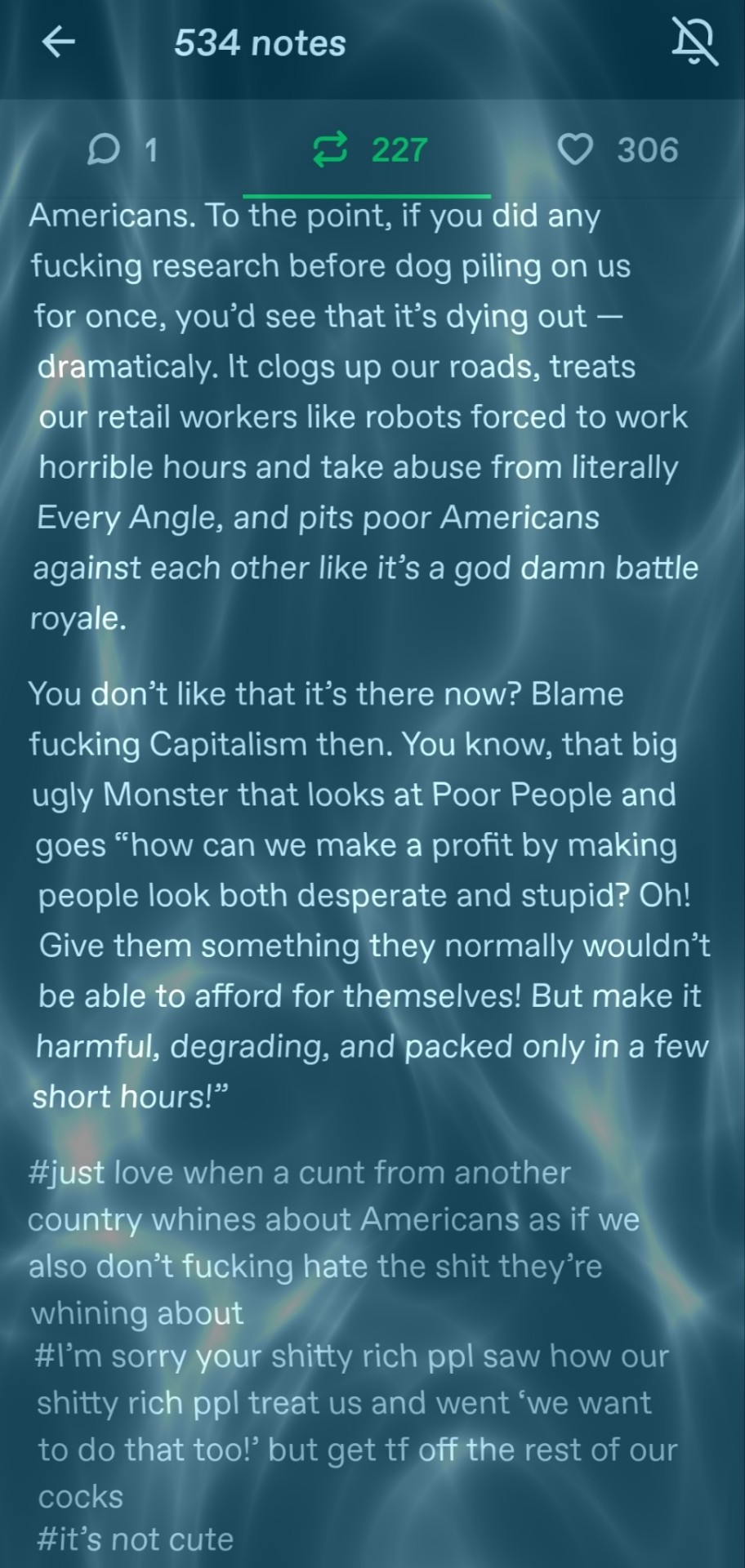
#get a grip#you get called out on your priviledge and you start crying like little plačipičke#lived experience#ura.txt
5 notes
·
View notes
Text
#I mean in cases that require studying people#research#lived experience#tumblr poll#tumblr polls#academia#academics
3 notes
·
View notes
Text
it's world suicide prevention day, so i thought i should make a little message - -
youtube
if you're someone whose life has been touched by suicide, you're not alone. i hope that today, you're able to show yourself some warmth.
if you're in need of resources, please do consider looking into ways to support yourself - there's a bunch of suggestions in the YT video description.
#suicide#tw suicide#lived experience#world suicide prevention day#suicide prevention#mental health#Youtube
13 notes
·
View notes
Text
Neurodivergent self dx is and always has been incredibly valid for a lot of people. I think we also need to talk about what "lived experience" actually means, though.
When parents are trying to figure out if they should get their kid tested for autism, and autistic white women in or above their late 20s with degrees and full time jobs, who are late professional or self dx, start spitting off answers about how they wish they'd gotten tested or diagnosed as a child, that's no longer lived experience. That's not your experience, that's something that looking back you wish you could've changed about your life.
I experienced psychiatric trauma as a result of my early dx autism, I was in therapy before I was in kindergarten. I was isolated in school to the point of depression, then hospitalized, then put in a special program where I was being illegally restrained daily, then sent to a therapeutic school. I have been being conditioned like a dog longer than I've been able to count to 20. That's lived experience.
Just because you use a word to describe yourself doesn't mean we have the same lived experience qualifications.
#autism#actually autistic#mad activism#neurodivergent#lived experience#psychiatry#ABA#therapy#self diagnosis#self diagnosed autism#prodx
18 notes
·
View notes